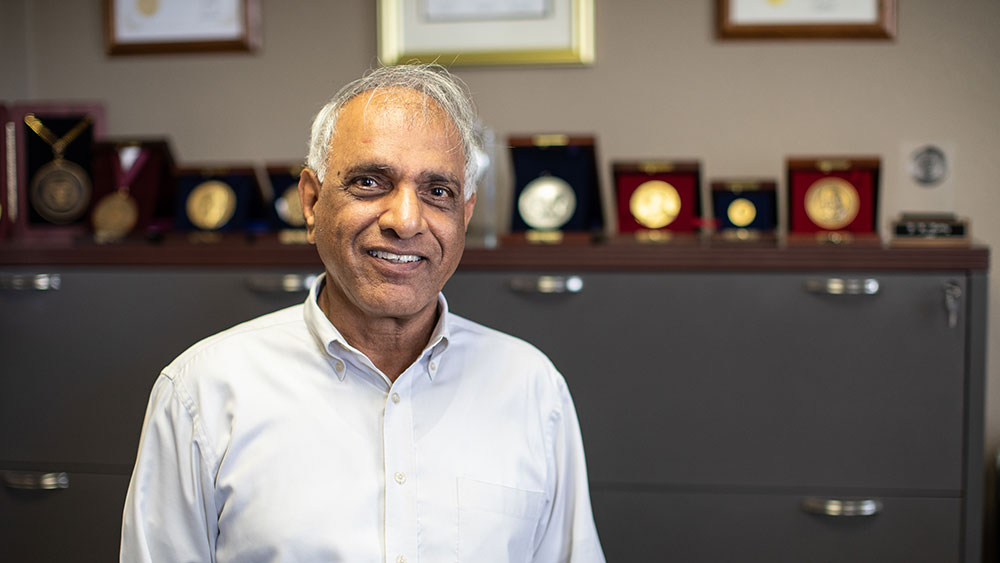
Texas A&M University’s College of Engineering takes pride in hiring the highest quality of engineering professionals in academia and industry, and with over 40 years of experience, Dr. J.N. Reddy represents the pinnacle of excellence in engineering. Named one of the world’s top 2% of scientists in a 2021 Stanford University survey, Reddy is a testament to years of advancement in the vast field of engineering.
Q: In your words, what does it mean to have excellence in engineering? How have you seen this demonstrated?
A: The quality of being outstanding in what we do is excellence. In an academic institution this is measured in terms of the degree to which a teacher succeeds in explaining concepts, equipping the student with problem-solving tools and creating and disseminating knowledge that has broader (societal) impact. Demonstration of excellence in engineering also comes in educating students to become inventors, entrepreneurs and leaders; in publishing scientific articles that pave the way for others to extend and implement; and in providing intellectual leadership. Exemplifying excellence in my case was through education (passionate teaching and authoring textbooks that facilitate learning) and the publication of ideas that allowed other researchers to extend, advance and use in the engineering work place.
Q: The J. Mike Walker ’66 Department of Mechanical Engineering has strived to consistently deliver excellence in engineering education. How has excellence in engineering — mechanical engineering specifically — evolved over the years?
A: The College of Engineering at Texas A&M has come a long way — from primarily a teaching school to one of the top public engineering schools in the country. We have hired many good faculty members who have their doctoral degrees from top engineering departments in the country.
In particular, the mechanical engineering department at Texas A&M is currently at its peak in terms of the reputation and stature. The department has some of the most well-known and highly-cited researchers in the world mentoring the next generation of scientists. It is hoped that our faculty, with their significant educational, research contributions with societal impact, and professional service that advances the material wellbeing of the society (e.g., mentoring the first-generation students and underrepresented minorities), will take the department to newer heights.
Q: What do you think the future holds for the mechanical engineering industry?
A: Mechanical engineering is the mother of all engineering disciplines. The future of mechanical engineering is bright, and mechanical engineering at Texas A&M continues to provide a large percentage of engineering graduates from the state to the workforce around the country. In my opinion, it will continue to be the discipline of choice, because of the versatility and variety of jobs for which the graduates are qualified, for a long time to come.